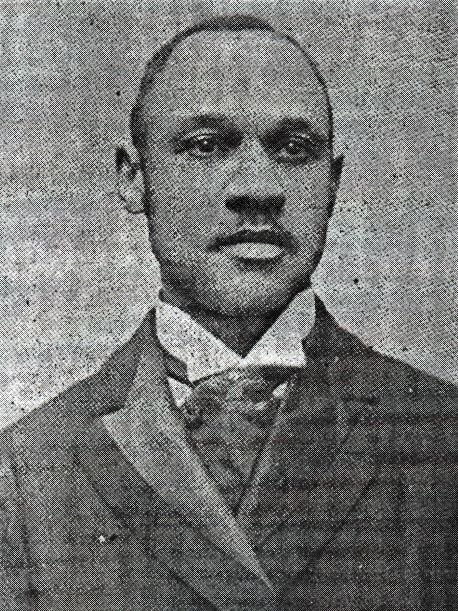
One of the more enigmatic figures during the University of Maryland Eastern Shore’s early years is Jacob C. Dunn, whom early oral histories portray as the school’s first faculty member. Little is known about the Delmarva native prior to enrolling in the Centenary Biblical Institute (now Morgan State University), where he encountered educator Benjamin O. Bird, who would become UMES’ founding principal.
Graduating from Centenary in 1886, it is unlikely Dunn was on hand in Princess Anne for the opening of the Delaware Conference Academy in September of that year. Rather, it appears he continued his studies in Baltimore, since he presented an oration, “Build Your Own Monument,” during the institute’s 1887 commencement exercises.
At some point between 1887 and 1890, however, Dunn accepted his first teaching assignment at the prep school in Princess Anne. There, he joined Bird and his wife, Portia, to teach rhetoric and grammar to anywhere from 30-to-70 students.
In 1891, he returned to his alma mater in Baltimore, now officially known as Morgan College, to study theology in preparation for a life in the ministry. His career choice was no surprise, since Dunn was familiar with the Methodist Episcopal Church through his father, the Rev. Daniel R. Dunn, a Delaware Conference member since 1874. It also is likely he received encouragement and support from Bird, who studied theology at that institution as well.
Upon completion of his studies, Dunn was admitted to the Delaware Conference in 1895, where his name and that of his father are featured prominently in annual meeting minutes.
The historical record is silent on the matter, but it is likely he returned to teach in Princess Anne prior to 1897, when the Delaware Conference officially appointed him to the post. In his absence, Princess Anne Academy, as it was known then, had grown under the steady leadership of the Birds.
The 12th Census of the United States listed Dunn, his wife Mary J. and a one-year-old son, Joseph, as living in Princess Anne on June 30, 1900 and his occupation as “teacher.”
The Delaware Conference’s 1913 annual meeting report says he spent five years on the Princess Anne Academy faculty and one year serving as pastor of a Methodist Episcopal charge in White Haven, Md. in Wicomico County .
Benjamin Bird died in April 1897, leaving Portia to run the school. In writing Bird’s obituary, Dunn described his friend and mentor as modest “and so quiet the energy with which he accomplished the work undertaken that only those who were well acquainted with him know he possessed any remarkable talent, and men were surprised when they learned of his splendid achievements.”
Two years later, it fell to Dunn to compose yet another eloquent tribute — this time for Portia Bird.
“The writer of this sketch prepared and read a paper touching the life and character of one well-known and much loved by all of the members of this Conference — indeed by all (who) knew him — (the late) B.O. Bird,” Dunn wrote. “‘The other half of his soul’ has joined him in that school, higher and larger than that in which they labored here fitting boys and girls to be men and women of worth.”

Not long after Portia Bird’s death in 1899, Dunn moved on. By 1904, he was preaching in churches across New Jersey with assignments in Salem, Camden and Orange before his death in 1915. The Jan. 20, 1916 edition of the Christian Advocate contained a news brief reporting the Rev. Stephen J. Herben had delivered an address four days earlier at Saint John’s Church in Orange, N.J. “on the occasion of the unveiling of a memorial window to the Rev. Jacob C. Dunn, a former pastor of (the) church.”
No published obituary for Jacob Dunn has surfaced, but those who encountered him remembered him as a well-dressed, forceful orator who commanded attention in the classroom and in the pulpit.
For many years, he was remembered at Morgan through the Jacob C. Dunn award presented to the best freshman debater. Later, the prize was given for excellence in home economics.
Material about Dunn was drawn from extensive research of the minutes of the Delaware Conference of the Methodist Episcopal Church and from newspaper accounts of the day.

